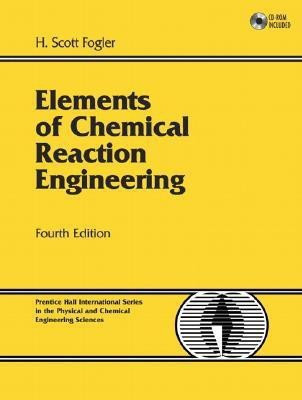Elements of Chemical Reaction Engineering(English, Mixed media product, Fogler H. Scott)
Quick Overview
Product Price Comparison
The book presents in a clear and concise manner the fundamentals of chemical reaction engineering. The structure of the book allows the student to solve reaction engineering problems through reasoning rather than through memorization and recall of numerous equations, restrictions, and conditions under which each equation applies. The fourth edition contains more industrial chemistry with real reactors and real engineering and extends the wide range of applications to which chemical reaction engineering principles can be applied (i.e., cobra bites, medications, ecological engineering). Salient Features The best selling chemical reaction engineering book just got better! The fundamentals of chemical reaction engineering -- presented in a clear and conciser manner The reader learns how to solve problems through reasoning rather than getting lost in trying to remember which formula applies to what situation Reader develops critical and creative thinking skills they can apply to many situations, becoming more productive and self-reliant The solutions manual is now available for download through the IRC New to this Edition The greatest expansion of material is in the area of the bioreaction engineering. New material on enzyme kinetics, cell growth, and tissue engineering has been added. There is a bioreaction engineering homework or example problem in virtually every chapter. In addition there are side notes describing blood coagulation, DNA lab-on-a-chip and methanol poisoning. Bio-related Web Modules include physiological-based pharmacokinetic (PBPK) models of alcohol metabolism and the Russell's viper, the cobra, and the Fer-de-Lance venomous snake bites. Other new material includes density functional theory, microreactors, side-fed-membrane reactors, advanced reactor safety screening tool (ARSST), runaway reactors, and tubular reactors with axial and radial gradients (FEMLAB). Expanded material includes collision theory, transition state theory, molecular dynamics, and molecular chemical reaction engineering (DFT) to study rate constants. The Fourth Edition contains more industrial chemistry with real reactors and real reactions and extends the wide range of applications to which chemical reaction engineering principles can be applied (i.e., cobra bites, medications, ecological engineering).


